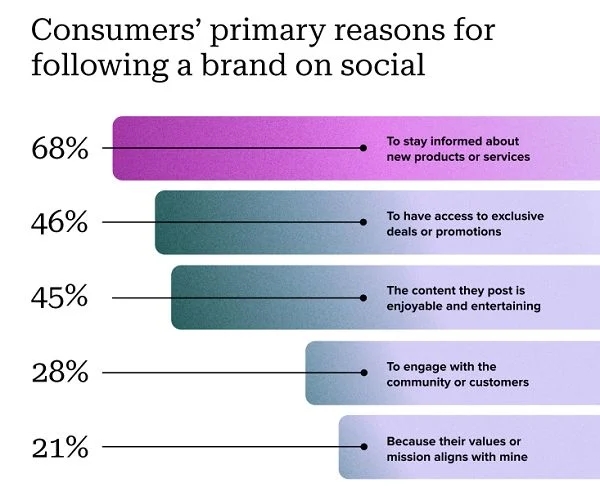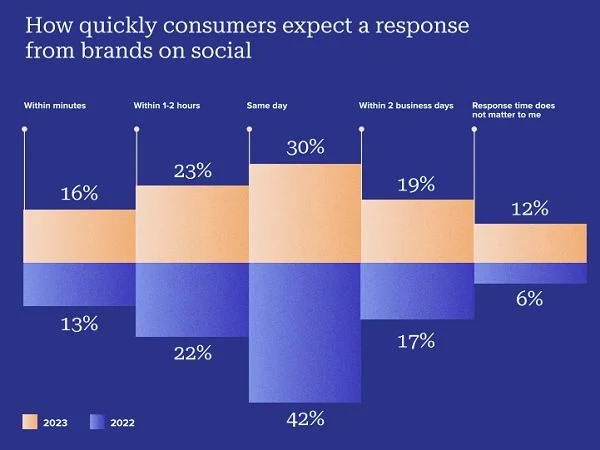Social networks: What do consumers expect from brands today?

Consumer habits, technologies, content formats… everything is evolving quite quickly on social platforms. The same applies to consumer expectations. The latest Sprout Social study, carried out in the United States and the United Kingdom, looks at how brands and customers want to interact with each other.
In a world where the use of social networks occupies more and more time and space, there are many topics: the use of artificial intelligence, user behavior, originality of content … And, despite all the novelties, certain constants remain.

According to the study, it is first and foremost to stay informed that consumers subscribe to brands (68%). This is followed by other motivations: access to advantageous rates (46%), entertainment (45%), the consumer community (28%), and company values (21%).
Attention: this does not mean that we should prioritize certain topics over others. It is a whole with which it is necessary to know how to deal to optimize its presence on social networks. A consumer looking for something new can thus be sensitive to information about the development of a product, the team having worked on the project and an associated promotional offer.
On social networks, Internet users do not want to be confronted head-on with 100% commercial content. It is therefore necessary to find a certain balance to highlight a product or a service while remaining authentic, transparent about its values, provide qualitative information, do a little pedagogy, and why not reuse content created by users.

The success of a company or a brand can ultimately be summed up in the link it manages to forge with its community. 69% of consumers surveyed hope to have a response to a message within a day, but a growing share expects a return within minutes of a publication; even if they are aware that solicitations from companies are sometimes very numerous on social networks.
In order to optimize certain tasks, the solution could be to turn to AI. But, we must remain cautious because further robotization can reduce consumer engagement. Although ultra-efficient, a 100% automated process would lose authenticity and appeal less. Again, it’s all a question of dosage around a real strategy!








